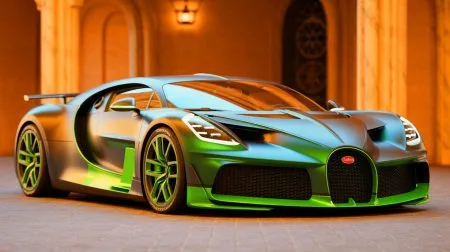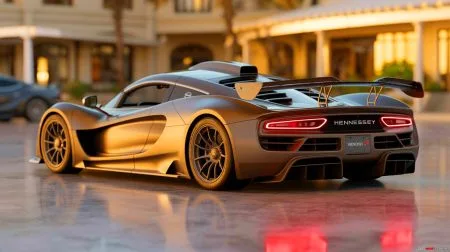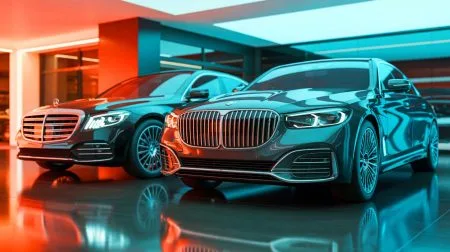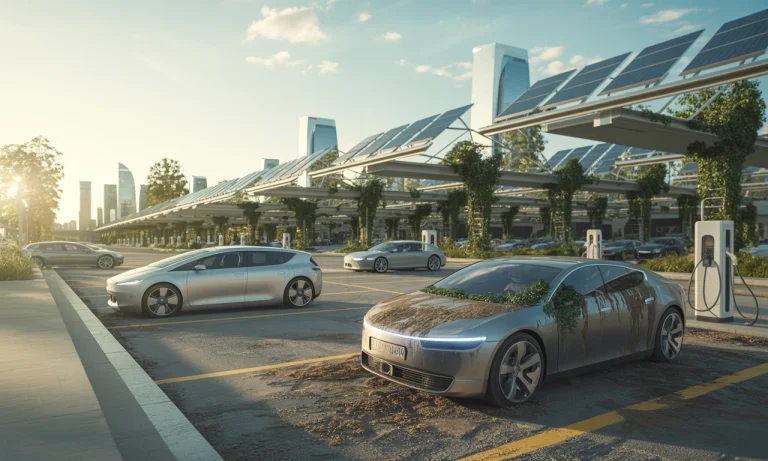When Emily purchased her well-loved Ford ten years ago, she expected years of reliability, weekly commutes, and summer getaways. At the same time, her neighbor, Max, watched as early battery-powered cars often succumbed to battery woes long before reaching half their promised mileage. Fast-forward to today’s bustling city streets, and both vehicles—one faithful internal combustion engine, the other a sleek, modern Tesla—share the same parking lot, their lifespans unexpectedly equal. As the sun rises on 2025, a groundbreaking study has rewritten the script for motorists: electric vehicles now rival, and in some cases surpass, the longevity and reliability of petrol and diesel cars. Brands like Volkswagen, Honda, Toyota, Hyundai, and BMW are reshaping expectations, while even fuel giants such as Shell must reconsider a future where the boundaries between traditional and electric mobility are dissolving. The journey to this point blends rapid advances in battery technology with changing consumer attitudes, positioning the entire auto industry at the crossroads of tradition and innovation.
Longevity of Petrol, Diesel, and Electric Cars: A New Era for Vehicle Lifespans
The lines drawn between petrol, diesel, and battery electric vehicles (BEVs) once seemed bold. For decades, the world trusted petrol and diesel engines—like those in General Motors and Nissan cars—with long, dependable service lives. These cars built their reputations on endurance. However, an international research team delved into 300 million UK MOT test records spanning almost two decades, only to reveal an unexpected change. Early BEVs, notorious for battery degradation and maintenance challenges, have rapidly caught up, and with each new model year, reliability has surged.
Petrol engines, as detailed in car-engine innovation studies, have improved methodically: their likelihood of failure drops by 6.7% for each year of newer manufacturing. Diesel vehicles, with their robust designs, follow at a slower 1.9% hazard improvement year after year. In striking contrast, BEVs—led notably by Tesla—now post a remarkable 12% reduction in failures annually, surpassing their internal combustion peers in this critical metric. For drivers, this isn’t just statistics: it’s the promise that the vehicle you choose today holds its value and function against the tides of change.
| Vehicle Type | Average Lifespan (Years) | Typical Mileage (Miles) | Top Brand |
|---|---|---|---|
| Petrol | 17.9 | 100,000–120,000 | Audi |
| Diesel | 17.6 | 110,000–128,000 | Skoda |
| BEV (Electric) | 18.4 | Up to 124,000 | Tesla |
How Electric Vehicle Reliability Surpassed Tradition
Back when the first BEVs rolled onto the market, skepticism shadowed their every move. Issues like limited range and frequent breakdowns made them, at best, a niche interest. For a while, diesel and petrol vehicles—championed by established titans such as BMW, Toyota, and Ford—seemed irreplaceable, admired for their accumulated engineering wisdom and networks of experienced mechanics. The tide, however, turned rapidly. New battery chemistries, smarter onboard diagnostics, and durable manufacturing—spearheaded not just by Tesla but mirrored by Nissan and Hyundai—built a new standard.
Today’s BEVs command attention: research indicates a typical lifespan of up to 18.4 years and 124,000 miles driven. Meanwhile, the secondary market for electric cars is booming as used models now reliably push past former longevity expectations. The landscape has fundamentally shifted, compelling even traditionalists to look twice at their next automotive purchase.
Mileage and Maintenance: Breaking the Myth of the Short-Lived Electric Car
For generations, family discussions around the dinner table drew on one common refrain: diesel and petrol cars were built to last. This narrative, however, has begun to unravel, thanks to airtight data and a new breed of electric vehicles tough enough for everyday rigors. Consider the case of Volkswagen and Honda, both of whom have invested heavily in driving down maintenance needs and enhancing component durability. The old assumption—that electric cars cannot match the longevity of fossil-fueled vehicles—has been put to rest by the latest MOT record analysis.
The road to high mileage for BEVs is paved with iterative innovation: battery packs that shrug off degradation, motors with fewer moving parts, and predictive maintenance technology that signals trouble before it strikes. As a result, BEV maintenance costs are becoming distinctly more manageable, cutting into the traditional cost advantage once held by diesel and petrol models. In practice, the modern Tesla, BMW, or Hyundai EV can clock journeys once unimaginable, giving consumers the confidence to shift brand loyalties.
| Brand | Maintenance Costs (Est.) | Notable Longevity Feature |
|---|---|---|
| Tesla | Lower (over lifetime) | Advanced Battery Management |
| Ford | Moderate | Robust ICE components |
| Toyota | Moderate | Hybrid Synergy Tech |
| Honda | Low-Moderate | Long-lasting engines |
| General Motors | Varies | Adaptable platforms |
The Environmental Impact of Longer-Lasting Cars
Longevity has implications beyond the individual driver—it’s now a lever in the battle for a sustainable future. While skeptics once pointed to the higher emissions of battery production, extended vehicle life means that the initial carbon cost is distributed over many more miles. Companies like Shell are watching the landscape change, positioning themselves for a post-petrol market that values reduced life-cycle emissions and responsible energy sourcing. As renewable energy seeps further into the European grid, BEVs become not just a technological upgrade but an eco-conscious choice for the discerning motorist.
As detailed in analyses such as eco-friendly vehicle futures, the equation for environmental responsibility continually tilts in favor of EV adoption. The interplay of longer lifespans, improved recycling, and an evolving energy mix empowers both manufacturers and owners to participate in a cleaner transportation chapter.
For families weighing the merits of Volkswagen diesels versus the allure of a new Tesla, the environmental benefits of longevity edge closer to the forefront of every car-buying conversation. The power to help shape the future now sits in their hands—and driveways.
Data-Informed Choices: Reliability, Value, and the Shifting Automobile Market
On dealership floors and online marketplaces alike, consumers confront a dizzying array of choices. Data-driven transparency now guides big decisions: which brand to trust, how long a car will last, and what costs to expect down the road. Platforms like LeftLaneNews’ used electric car guide and EV vs gas car comparisons offer insight amid a shifting market where reliability metrics are equalizing across vehicle types.
Manufacturers respond in kind. Toyota and General Motors, for instance, continue to iterate on engine and battery technologies, weaving reliability into every layer. Meanwhile, consumers explore new strategies to extend engine and battery life, ensuring that whichever vehicle sits in the driveway holds its worth. The ripple effects reach policymakers as well, shaping incentives that reward investment in sustainable, long-living mobility for all.
| Decision Factor | Petrol/Diesel Cars | Battery Electric Vehicles |
|---|---|---|
| Average Lifespan | 17.6–17.9 years | 18.4 years |
| Long-term Maintenance | Higher with age | Lower with new models |
| Resale Value Trend | Stable, slow depreciation | Increasing, more stability |
| Environmental Score | Lower as legislations tighten | Improving as grid cleans |
In city centers, workplaces, and rural highways, these choices echo across a new generation of motorists, ensuring the conversation about longevity remains lively and rooted in evidence, not mythology. The next turning point may be closer than we imagine, powered by both innovation and the stories we tell about the open road.
Questions and Answers on the Lifespan of Petrol, Diesel, and Electric Cars
What factors most affect the lifespan of petrol and diesel cars?
Longevity for petrol and diesel cars hinges on regular maintenance, driving style, climate, and quality of parts. Advances in engine design—from Ford and Toyota, for example—have mitigated major risks, but real-world performance still requires attentive care.
Are electric vehicles now a better long-term investment compared to traditional cars?
With the latest findings, modern BEVs such as those from Tesla and Hyundai can rival or exceed the typical lifespan and mileage of their petrol and diesel counterparts. Coupled with lower maintenance costs and environmental benefits, they are increasingly seen as a sound long-term investment.
How has battery technology influenced EV durability?
Recent breakthroughs in battery chemistry and management systems—initiated by brands like Tesla and Nissan—have significantly reduced degradation, resulting in notably improved reliability and vehicle longevity.
Do petrol and diesel cars still offer unique advantages?
Certain use cases, such as extreme climates or very high mileage expectations, still favor diesel for its torque and efficiency, or petrol for its robust, familiar mechanics. Additionally, brands like Volkswagen and Audi have refined engine efficiency for specialist needs.
What environmental impacts should buyers consider?
Long-lasting BEVs rapidly offset their initial battery production emissions as they accumulate mileage—especially in regions where the energy grid favors renewables, as highlighted in multiple recent studies. In effect, each passing year and mile strengthens their position as the lowest-impact vehicle option now on the road.
Did you like it? 4.5/5 (26)







